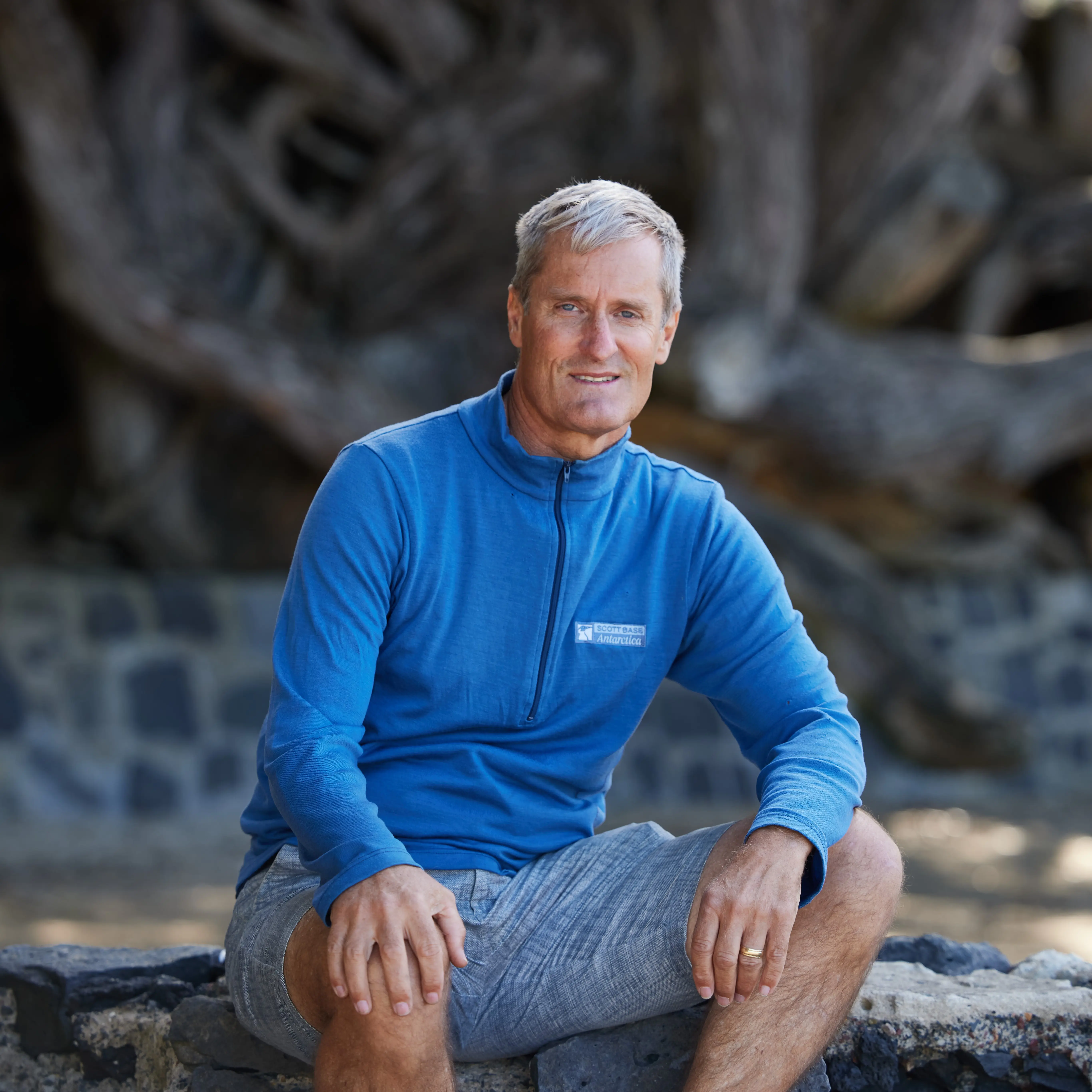Professor Mark Orams
Renowned sportsman-turned-scholar and environmental champion
It is perhaps no surprise that Mark Orams epitomises the exact qualities he admired in Sir Peter Blake.
The former elite yachtsman spent countless hours with Sir Peter as crew on the winning Steinlager 2 team in the Whitbread Round the World Race in 1989-90, in Team New Zealand in the America’s Cup competition, and as the onboard scientific advisor for Sir Peter’s post-sailing conservation endeavours with Blakexpeditions.
Dr Orams was so inspired by Sir Peter’s leadership style, he wrote a book about it so others could learn from his example.
It was Dr Orams who became the first chief executive of the Sir Peter Blake Trust, a tenure that saw him establish the very first Blake Awards, in honour of his friend and mentor.
So, it seems fitting that Dr Orams himself is now receiving a Blake Award.
Raised in Waitara on the Taranaki coastline, the sea has been the steady backdrop for Dr Orams’ life and career.
His love of sailing and surfing inspired a passion to protect the sea and its wildlife, and he has turned his career of international success in sailing into one of science and study – achievements that have also attracted international recognition.
His primary interest is on how human interactions in tourism and recreation impact the sea and its marine life.
He believes his parents attracted him towards a life of learning and academia – both of them were schoolteachers.
It was while he was still competing as a professional sailor in 1995 that Dr Orams completed his PhD in Geographical and Marine Sciences.
The list of the more than 150 articles, chapters and contributions to scientific journals he has had published during the last two decades spans several pages, but there is an overarching theme of marine conservation to them all.
He has also authored six books and has appeared as a motivational and guest speaker at a long list of conferences and events.
He has held university leadership across multiple faculties but is currently Dean of the Graduate Research School and Interim Dean of the Faculty of Health and Environmental Sciences at Auckland University of Technology, where he is responsible for the systems and processes that allow top students to achieve their doctorate and masters degrees as well as leading New Zealand’s largest faculty of applied health and environmental sciences.
Dr Orams believes to be a great leader you need to surround yourself with outstanding people, create a fun culture, set clear but high expectations, and then empower and trust your team to get on with their jobs.
He says the most important thing he learned from Sir Peter was the value of your team.
“Your role as a leader is to try and bring out the best of everybody,” he says.
“The team is far more important than the individual. If you work collectively as a team where everybody’s contribution is valued, you can achieve some remarkable things.”
He has himself achieved this by way of coaching and mentoring others – not just in sailing but also in the universities he has worked in, as well through substantial commitments to several sporting and environmental charities and organisations, with roles including trustee, board member and director.
Dr Orams holds a deep sense of service and responsibility towards the staff and students whose research he supervises and sees it has his role to bring out their best.
He describes being “deeply honoured” to share his support, something that appears mutually beneficial with his ongoing mentoring of many former students long after they have moved on into their own careers.
He is even the Godfather of a former student’s daughter.
In 2010, Dr Orams co-founded and became chair of the International Coastal and Marine Tourism Society, an international scholarly society, a role he continues in today. He also serves on the Sustainability Commission for World Sailing.
And although he has inspired so many, Dr Orams says it is the younger generations who inspire him.
He says that conservation efforts in a time of rapid environmental deterioration can start feeling overwhelming.
“It fills me with hope when I meet young people who don’t have that sort of cynicism that comes with age,” he says.
“They have this optimism of youth and looking forward, and a sense of ‘we can make a difference’ – ‘we can, through our actions and our decisions, change things for the better’ – and that is hugely important for all of us.”
Dr Orams believes sports, recreation and tourism are the most powerful agents for creating change in ocean conservation because when people experience and enjoy it, they begin thinking about how their actions have an impact.
Once again like Sir Peter, Dr Orams prefers to looks forward, not backwards.
He holds hope that the challenges the world has faced in 2020 teach us that individual actions can have an impact on everyone.
“I hope that the sort of disruption that we’ve had to cope with this year in the COVID-19 pandemic reminds us all of how connected we are – not just as people, but as a planet.
“While we might see ourselves as coming from a particular country or a particular culture, or we might identify with a particular location where we live, actually, we’re all deeply connected. Our future and the future of our planet are intertwined.”


